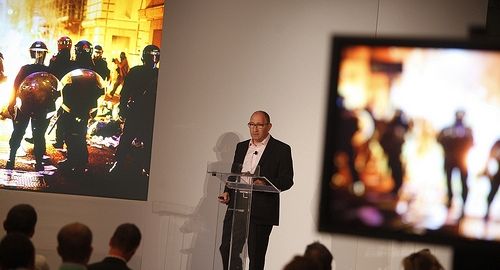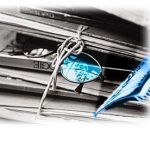Many in this room are familiar with Edelman’s Trust Barometer. The 2012 edition, due out in January to coincide with the World Economic Forum in Davos, will be the company’s thirteenth. This is now a deep and insightful, twenty‐three country survey that allows us to reflect on global events through this essential prism of Trust. We can see how the historically four great istitutions of Government, Media, NGOs and Business track over time. We can analyze the data on both a macro and a series of micro levels. I think it is fair to say that Edelman properly understands the nuances of Trust.
We all know that Trust matters. Trust offers a protective coating for companies and for brands. Trust also helps determine the frequency of messaging. Trust matters because companies that are trusted are four times more likely to be believed than those who are not. Trust pays commercial dividends.
We live in a truly complex and inter‐dependent world, where ‘trust’ exists in a near‐perpetual state of fragility and flux. This fragility of trust, however, and the clear shift from a shareholder toa stakeholder worl provideaunique opportunity for the PR community. We should celebrate complexity. We should re‐equip ourselves to face this complex future. We should seize the moment and take this chance to lead.
2011 has been a momentous year in the Trust stakes:
S&P’s downgrading of US debt is just one of many starting points. Whether this represents a crisis of Trust, a crisis of confidence or just a crisis of US politics – the 2012 Barometer data will no doubt offer insight.
Riots on the streets of London likewise indicate a crisis of Trust in society. Nothing can be more visceral that watching the trust in political institutions simply burn away on our TV screens.
Trust in Media can surely not emerge unscathed – in the UK at least – by the crisis that has engulfed News International and News Corp (disclosure: an Edelman client). Nor has this crisis been contained within the institution of media: widespread allegations of police corruption abound. Trust in traditional institutions is eroding.
All this may seem somewhat parochial, when considering the current crises in the Euro zone – from questions about the publication of un‐believable, if not fraudulent, national accounts, to a cadre of political leaders who seem bewitched to understand whether to save the economies of the region or their own political fortunes.
Meanwhile, back in the USA, we have politicians driving the economy to the edge – paralyzing progress in return for scoring political points. Who would you trust there to ‘do the right thing’?
In Japan, a tsunami provoked a nuclear crisis and, in turn, a political crisis too. No riots on the streets of Tokyo, though. But instead the sixth Prime Minister in five years and reverberations felt as far afield as Germany, who pulled the plug on its nuclear energy programme…. in turn, sparking a crisis of Trust in Government, from Business. We live in a truly inter-connected world.
The Arab Spring will, in time, provide a Trust Case Study all by itself – asking questions from the role of Social Media to the issue of whether ‘dictatorships’ can ever survive in a democratizing world where we seem to trust one another more than we now do authority figures. But Tahrir Square is not just about Egypt or Mubarak, nor is the Arab Spring just about the Middle East. Tahrir Square is emblematic of a new, and more youthful, world order. There is, without doubt, a Tahrir Square moment waiting to happen for a business or a brand.
We should not get too carried away on the euphoria of events in North Africa and the Middle East. To be ‘authoritarian’, if you follow the data, does not mean you are not trusted. Consider relative Trust levels in China to those in the West. Consider Trust in Business – or in Government – in the UAE to that in Europe. As with so much of our lives these days, we need to look east, not west – and to re‐evaluate our prejudices and our understanding. The West is the receding empire. The sun rises in the East.
While 2011 may seem like a watershed year, the data may tell us otherwise. Every season has its blips and bumps. We saw this with the ‘issues’ that surrounded BP and Toyota, to quote just two examples, some twelve months ago. Look at the UK Trust data over the past ten years and you will see an Iraqi double‐dip, affecting trust in Government more so than trust generally. In fact, despite these events, for the most part Trust remains essentially stable over time: although we have seen some volatility – notably the fall in Trust in the USA last year, crashing from the Obama peak in 2010 – here in Europe we remain essentially mixed about Trust: a healthy dose of skepticism abounds, contrasted with the previously optimistic Americans and the more Trusting of those nations in the East.









